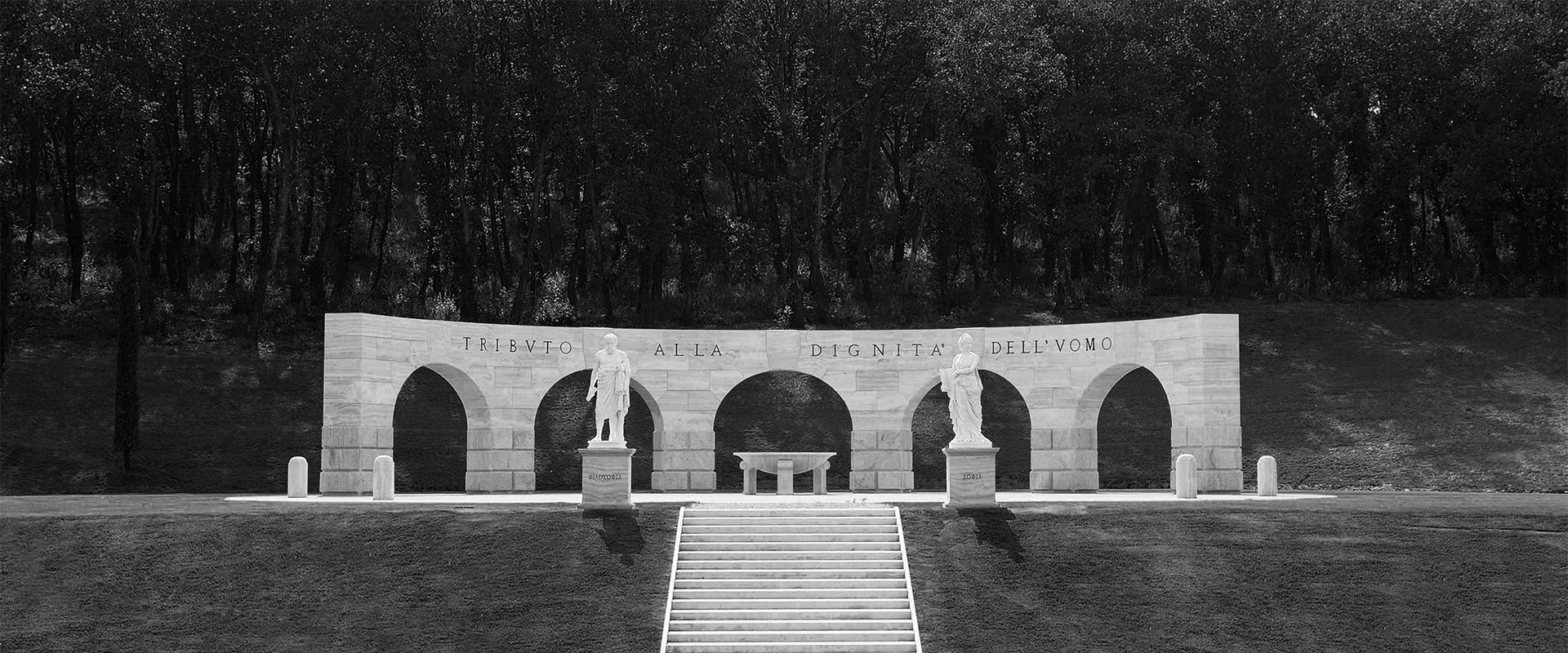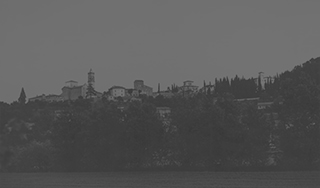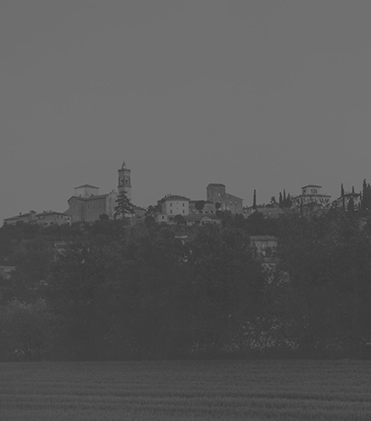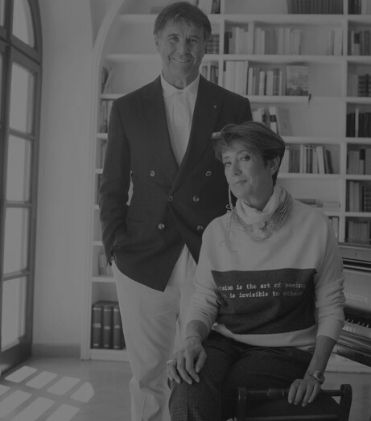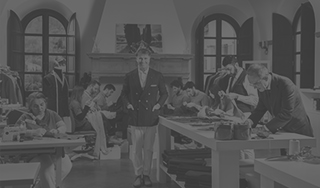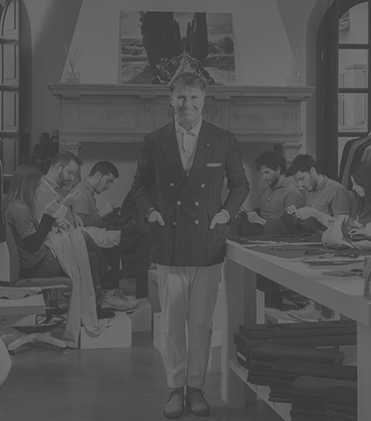Human Sustainability
Humanistic Capitalism and Human Sustainability
I like to think of an inclusive sustainability of material and spiritual values, a concrete place where the environment, the economy, culture, morality and the spirit live together. I am convinced that in this way we can act in a sustainable and complete way, because in spite of technology we live immersed in nature, and as Leibniz put it, nature "does not make leaps", that is, the relationships between things are of continuity and not of disruption. For this reason, we imagine that there should be environmental, economic, technological, cultural, spiritual and moral sustainability.
Environmental sustainability
Every day, on my way to work, I drive through the scent of the fields, the smell of wood burning in the fireplaces, accompanied by the song of nightingales and the water flowing quietly in the Caina small stream. This serenity, this moderation, this providence of rural life appears to my soul as a lovely symbol of environmental sustainability. I sometimes think that all that we are doing today for a better environment, for the reduction of global warming, focusing on the composition of materials, the removal of harmful ones, on landfills and the control of polluting emissions, is in some ways like the ideal departure towards a world where we go back to regenerating, reusing, repairing, recovering, in other words to using the gifts of mother earth according to the natural rule, and this is something within everyone's reach, a conviction that has perhaps been influenced by the first part of my blissful life, spent in the countryside.
Economic sustainability
At our company, everyone does the following: we don't clock in, but we all strictly observe the working hours; we don't want people to be online for business reasons after the end of the working day and on weekends; we want salaries to be slightly higher than average, especially for those classified as blue-collar; we think that the lunch break should be as lovely as the lunch eaten with the family; we surround the workplaces with gardens and landscape, which are there for everyone to see thanks to large windows that make everything visible and present.
When we think of the business, we prefer gracious, constant and balanced development, and this too is a lesson that comes from rural life, where fast accelerations and large harvests cannot become the rule because doing so would damage the great harmony of nature; nature teaches us never to be too afraid of painful events – which often teach us something, as Saint Augustine said – and to follow the regular pace of our action. A hailstorm will never affect the whole countryside, but only part of it; a financial crisis cannot last that long, whatever its causes. And just like Ulysses said, it is enough to keep the rudder steady until the storm is over, beyond which there is always sunshine.
Technological sustainability
On the occasion of the end of the year 2022 celebration, my friend Francesco showed us some wonders of contemporary technology: artificial intelligence that can arrange and manipulate complex ideas, write them down and then translate them in any language, controlled with a few key words. A software that is able to create another software; almost a robot that is able to build another robot.These wonders had been announced to us by our friend Reid Hoffman when, in May 2019, he came to see us in Solomeo during our first Symposium on Soul and Technology, together with our many friends from the Silicon Valley whom I like to call “the young Leonardos of the 21st century”.Honestly, I was greatly amazed; and from this amazement came the giddy sense of how much good for humanity can come from technology, and of how much interest is placed upon its development.I went back in time, and I thought about when, already in the time of Humanism, but actually even much earlier, in the gardens of the aristocrats of the 16th century or in the palaces of Eastern rulers, robots of lions, birds and people were found, which moved thanks to water or other internal mechanisms, and were able to execute actions similar to their live models. In this respect, the Renaissance was able to combine Plato’s knowledge with Archimedes’, because invariably the humanity of the former suggested the path which the technique of the latter would follow in order to enhance the life of humanity: who can forget Leonardo da Vinci, Galileo? It was from their ideas that centuries later came the steam engine. The people of the 19th century must have felt lost in seeing the disappearance of horse-drawn carriages, which had been with them since humanity had the first memory of itself, but they were nonetheless able to understand and use the new inventions appropriately. Today, a time when the products of contemporary technology are so extraordinary that they can be a wonder even to their own creators, I think that, just like in the days gone by, our humanity will choose the most adequate use of the new science to enhance the life of Creation in every way, while at the same time controlling technological innovation so that it might never steal the soul we have received as gift. Two great thinkers of the past, Montaigne in the Renaissance and Jacob Burckhardt in the 19th century, believed, almost in an identical manner, that Science is useless without the guide of our mind.
Cultural sustainability
That great part of human thought of all times that is philosophy offers us a scenario of thought often crowded with very different ideas, and there are few things on which there is substantial agreement: one of these is the strong link between culture and the health of the soul. In Solomeo we make sure that culture is available to everyone. It is our way of contributing to that physical and spiritual connection without which culture would remain an unexplored and useless island, and we don't like that. In Solomeo there is a Theatre, an Academy, a School of Contemporary High Craftsmanship and Arts, and a Universal Library under restoration, all of which are freely open to everyone, precisely to encourage that positive close encounter igniting the spark that makes culture bear fruit and makes it sustainable with respect to the human soul.
Spiritual sustainability
Almost every day, as I watch the expanse of the Park for Beauty unfold in the valley of Solomeo, I am as astonished and moved as the first time, and I immediately feel the spiritual benefit of such an experience. I like to think that there is a sustainability of matter and a sustainability of spirit. The former is the one we keep most under scrutiny, and rightly so, because to lack control of material things is not acceptable. But at the same time I believe that spiritual values, while sometimes appearing less immediately to the senses, are no less compelling or important for the health of the human person, and for this reason I consider their sustainability as vital as that of matter.
When I’m at work and from a window I see in the distance the beauty of an olive grove gracefully designed in the line of many arches chasing each other, or admire a hillock outlined by cypresses regularly placed at the right distance, or contemplate the gentle curves of the vineyard following an artistic idea, I think admiringly of music, which soars on the mathematical rule, and my mind goes to my esteemed Pythagoras, in whose opinion “number rules the universe”. How many artists, men of letters and philosophers over time have not emphasized this point? From the time of Plato, through all the medieval scholastic philosophy, and then in the Enlightenment, up to idealism, positivism, existentialism and finally to the present day, the usefulness of contact with something beautiful, be it a painting, a book, or a landscape, is the seed from which the tree of wisdom grows, that wisdom that the human being cannot do without for their best life, just like my life, my soul and, I am sure, everyone’s soul, improves when we are treated with respect and benevolence.
Moral sustainability
I think of a wonderful book dating back to the 15th century and titled “Praise to the honorable merchant” by Benedetto Cotrugli, one of those universal spirits whom I have always looked up to as a mentor; a small manuscript of vital importance where he states that everything should be bought and sold at the right price. Cotrugli was certainly a humanist merchant, perhaps the first one, strictly speaking, and in this sense, with respect to history, almost a pacifist revolutionary who, for this very reason, still has a lot to say to the present day, especially regarding business ethics, and who asserted “the willingness and desire to purchase things with honor and without offending the Lord and thy neighbor”. His clear intent not to harm God or other people in any way seems touching and beautiful to me, and I’ve humbly tried to embrace this tenet in my daily business and in the care for Creation.
Still today, if we can be his moral heirs, we shall know that production must have the right price and the right profit. Not too many years ago, evading taxes could be considered by some as a smart action, and it sometimes sparked an imitative desire. Today this doesn’t happen anymore, things appear very different now. Paying taxes is a value, a duty and at the same time an act of respect to the society we live in and to other people. Just like profit, which must be harmonious and commensurate. How can excessive profit be justified? I crave none, and every single day I try to pay the utmost attention to ensuring that earnings are in line with the morality of my entrepreneurial business and with the high quality of my product. I’m convinced that such vision of the world is true to any human being and especially to young people, to whom we owe a lot and in whom we put our hope for a brighter future ahead of us. Today, with technology, everyone knows everything about everyone, and knowing that a company generates the right profit and distributes such benefit in a way that strikes the balance between profit and giving back creates an overall atmosphere of trust, esteem and serenity.
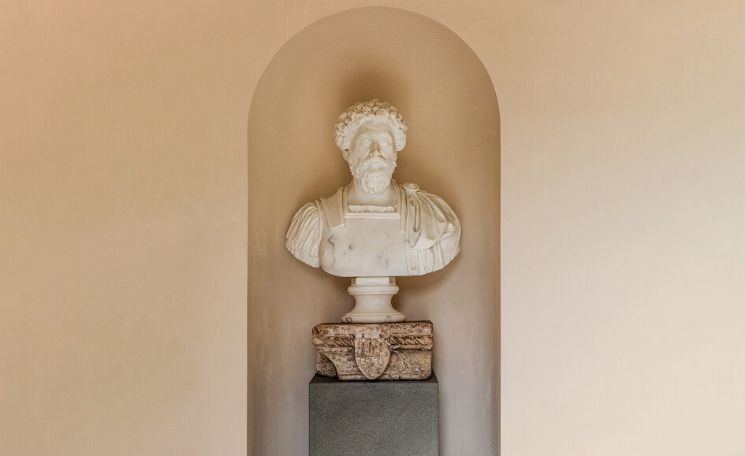
Targets for the reduction of greenhouse gas emissions by 2028
Within such a panorama of harmony with nature and all beings, our Casa di Moda has always been very careful to cultivate a deep respect for the environment.
The commitment to contribute to the improvement of our planet's climate has always been part of our culture, where we have adopted a unique and indispensable production model on high craftsmanship and low emissions.
Nevertheless, we are constantly striving to reduce our externalities by seizing all the opportunities that scientific development offers us, and we try with great responsibility to transfer this very serious commitment to all our partners and along the entire supply and production chain.
In this regard, the Board of Directors held on 14 December 2021 has approved the plan for reducing greenhouse gas emissions, consistent with the principles of the Science Based Targets Initiative (SBTi), to which we will submit our targets by the end of the year.
As part of this, our commitment will be, over the 2019 - 2028 10-year plan period, to reduce greenhouse gas emissions by 60% in terms of economic intensity, and in absolute terms by 70% for scope 1 and 2 emissions and by 22.5% for scope 3.
Consolidated Non-Financial Disclosure 2023


